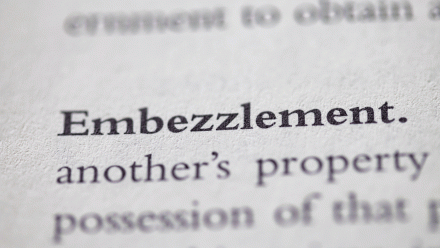Embezzlement remains a significant risk for churches, often resulting from poor internal controls. This real-life case demonstrates the consequences of lax financial practices and the importance of preventative measures.
The Case of Church Embezzlement
A church’s chief financial officer embezzled $850,000 in funds over several years using various fraudulent methods. These included forging signatures, issuing unauthorized checks, and misusing church credit cards. The theft not only caused significant financial loss but also resulted in legal and tax consequences for the perpetrator.
Key Takeaways from the Case
- The defendant used digital signatures of church officers to create false resolutions for increased borrowing.
- Unauthorized checks and personal expenses were concealed during account reconciliations.
- Luxury purchases, including cars and vacations, were made using church funds.
Preventative Measures for Churches
Church leaders can prevent embezzlement by implementing these internal controls:
1. Division of Responsibilities
Sharing or dividing tasks significantly reduces the risk of embezzlement. For example:
- Require at least two signatures for checks above a nominal amount.
- Ensure monthly bank statements are reviewed by someone not involved in cash handling or check writing.
2. Secure Handling of Digital Signatures
Digital signatures and stamps must be stored securely with restricted access. If secure storage is not feasible, avoid using them altogether.
3. Regular CPA Audits
A CPA audit provides a management letter identifying deficiencies in internal controls. This proactive step can help churches address vulnerabilities and prevent misappropriation of funds.
4. Filing Form 3949-A with the IRS
If embezzlement is suspected but the full amount is unknown, churches can file Form 3949-A with the IRS. This allows the IRS to investigate and assess criminal sanctions for unreported taxable income.
Lessons for Church Leaders
Many churches avoid implementing internal controls for fear of offending staff. However, financial accountability should take precedence over hurt feelings. Donors trust that their contributions are used for religious purposes, and churches have a duty to uphold this trust.
Key Internal Controls to Implement
- Require receipts and approvals for all expenses.
- Ensure offering counts and bank deposits are reconciled regularly.
- Educate staff and leaders on financial accountability and fraud prevention.
FAQs
- How can churches prevent embezzlement? Implement internal controls like dividing responsibilities, requiring multiple signatures, and conducting regular audits.
- What is Form 3949-A? It is an IRS form that allows employers to report suspected illegal activity, such as embezzlement, for investigation.
- Why are CPA audits important for churches? They help identify weaknesses in internal controls and reduce the risk of financial fraud.
- What should churches do with digital signatures? Store them securely or avoid using them if secure storage isn’t possible to prevent misuse.
Conclusion
Churches must prioritize financial accountability to prevent embezzlement. Implementing robust internal controls and promoting a culture of transparency can safeguard church funds and maintain donor trust.





